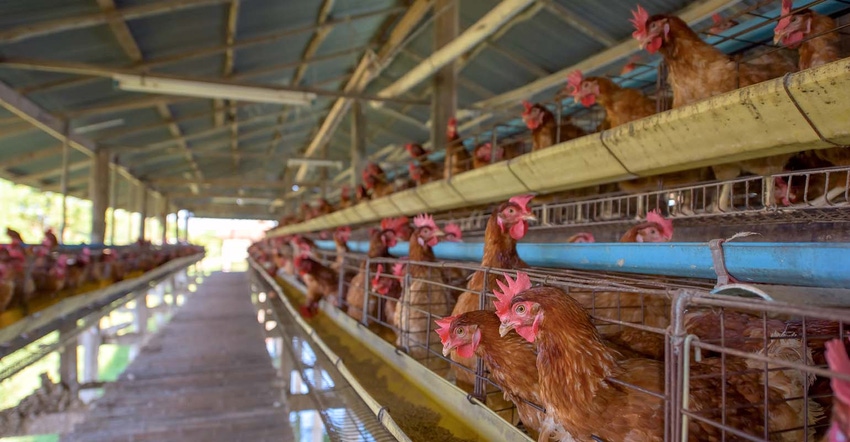
Curtis Hill, Attorney General for Indiana, is requesting the United States Supreme Court block the implementation of the Massachusetts’ Prevention of Farm Animal Cruelty Act (Animal Law).
The Republican Indiana official on March 16, 2018, filed a Reply Brief in the Supreme Court to support an original Bill of Complaint. He argues “The Supreme Court shall have original and exclusive jurisdiction of all controversies between two or more states.”
The Massachusetts Animal Law, like California’s similar law, attempts to dictate the cage size of hens which produce shell eggs. According to the brief, 99% of eggs sold in retail stores in Massachusetts come from other states, such as Indiana. The brief declares “The whole question is whether the Commerce Clause protects farmers from having to choose between ignoring another state’s production regulations and selling products in that state.”
Massachusetts appears to confirm, in its brief, it is giving farmers the choice of conforming to Massachusetts law or not selling in the state. Apparently there is nothing which describes how pen size for a chicken or hog affects egg or pork quality or health.
Can one state rule another
Indiana’s Attorney General argues it is critical to determine if one state such as Massachusetts or California can “…regulate production in other states…” Massachusetts, of course, argues that its Animal Law “does not directly or in practical effect regulate sales in other states.”
This is a silly argument, and the Indiana Attorney General calls the assertion “utterly implausible.” Indiana’s brief describes how Massachusetts Animal Law specifically targets Massachusetts retail establishments, but the direct effect regulates animal housing in Indiana.
It is clear Massachusetts is regulating production in other states. Indiana’s farmers must choose between ignoring Massachusetts’ regulations or complying with them to sell product in that state. Massachusetts apparently argues that it may regulate the food supply in the state so long as it does not discriminate. Indiana replies that Massachusetts is not regulating the quality of the egg or pork coming to the state but the conditions of production.
Indiana’s Attorney General also argues its own land grant university, Purdue, produces hogs for the national market. It is claimed by Indiana and other plaintiff states that such production requirements will cause the states to suffer direct injury because Massachusetts is erecting trade barriers to farm products unless those farm products follow Massachusetts’ required production regulations.
Indiana and 12 other Attorneys General are suing not only on behalf of their farmers, but the states allege they are representing their citizens “…in original actions where the injury alleged affects the general population of a state in a substantial way.”
Higher prices for consumers
The general injury to be caused by Massachusetts Animal Law “…will injure the general population in a substantial way by causing higher prices for shell eggs and pork.” Massachusetts says this assertion is merely speculative. Purdue’s own Dr. Jayson Lusk has specifically demonstrated in the record that Massachusetts Animal Law “...will result in increased production costs for farmers…”
He points out that eventually consumers will be charged higher prices for meat and eggs due to Massachusetts’ production requirements.
The bottom line is that Indiana and the plaintiff states produce pork for an interstate market. So the choice is clear. If the Massachusetts Animal Law goes into effect, farmers will either have to conform to Massachusetts’ production requirements or forego the Massachusetts market. The question becomes do farmers in all states have to farm and produce product as required by Massachusetts? Or California? That is a frightening thought for America’s farmers. Protect The Harvest and its leader, Forrest Lucas, have been urging numerous state Attorneys General to challenge states such as California and Massachusetts when they pass laws intended to harm the health, quality and well being of food production. Finally some people in agriculture are standing up to defend it.
Mr. Lucas and the Attorneys General deserve our support!
The opinions of the author are not necessarily those of Farm Futures or Farm Progress.
About the Author(s)
You May Also Like




